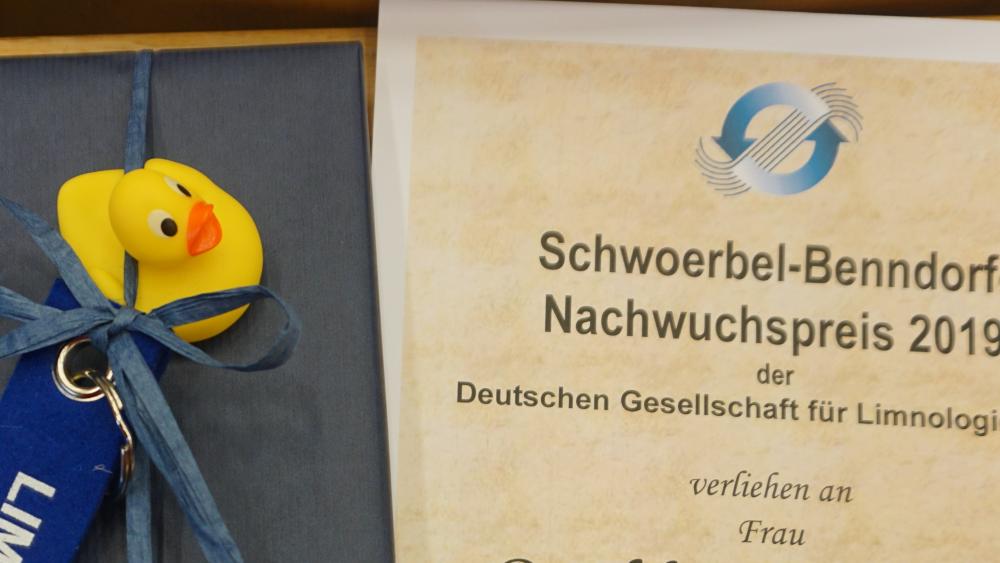
The research of Jonas Schaper and Oleksandra Shumilova was distinguished by the outstanding scientific approach and the high social relevance of their topics. Photo: IGB

Jonas Schaper (2nd prize)
In my thesis I investigated the fate of trace organic compounds such as pharmaceuticals in streambed sediments of urban rivers in Berlin, Germany, and Adelaide, Australia. I demonstrated that many trace organic compounds are removed or transformed along relatively short hyporheic flow paths and that this reactivity of trace organic compounds is linked to redox conditions (publ.1) and the availability of biodegradable dissolved organic carbon (publ.2). These findings are relevant to water management as they imply that hyporheic restoration will result in an enhanced reach-scale removal of trace organic compounds and will hence improve water quality in urban areas (publ.3). Read the awarded publications online > publ.1; publ.2; publ.3

Olexandra Shumilova (3rd prize)
In my thesis I studied how alterations in hydrology are connected with changes in the dynamic of organic matter on the global scale. Within the study I conducted experiments were I simulated rewetting of leaves, biofilms and sediments collected from the beds of 205 intermittent rivers sampled across 27 countries located in 5 major climate zones. I estimated leaching of nutrients and organic matter from different substrates that can be found in beds of dry rivers, how leaching differs across climate zones and whether we can predict it based on selected environmental variables. Results of this study help to put intermittent rivers in the context of global biogeochemical cycles, from which such rivers previously have been neglected. Read the awarded publication Open Access in Global Change Biology >


